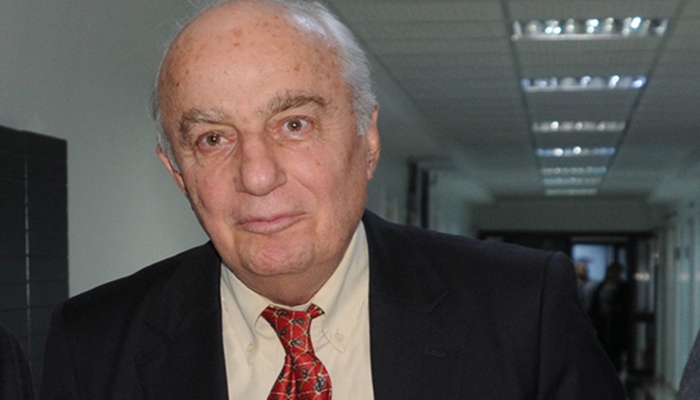Retired general Çetin Doğan has submitted an individual application to Turkey’s Constitutional Court with regard to his life sentence, which was handed down in 2018 for his role in the post-modern coup of February 28, 1997, the Cumhuriyet daily reported on Wednesday.
The life sentences handed down in 2018 to Doğan and 13 other defendants, including a former chief of general staff and his deputy, for their role in the 1997 coup were upheld by Turkey’s Supreme Court of Appeals earlier this month.
Among those sentenced to life in prison were then-Chief of General Staff Çevik Bir, president of the Higher Education Board (YÖK) at the time Kemal Gürüz and Deputy Chief of General Staff İsmail Hakkı Karadayı, who passed away in 2020.
The defendants were accused of “forming criminal associations to overthrow the government of the Republic of Turkey.”
Underlining that the case against them is “not legal, but political,” Doğan told Cumhuriyet on Wednesday that he filed an individual application with the Constitutional Court, arguing that the evidence against him was fabricated.
Doğan also referred to an expert report in which it was stated that all the information in a CD that was presented as the basis of his crime was distorted and that some of the documents presented as evidence against him lacked a wet-ink signature.
“We are clean, there is nothing we can’t account for,” Doğan added.
The case tackles the infamous military intervention of Feb. 28, 1997, often described as a “postmodern coup,” which did not result in direct military rule but forced the late Prime Minister Necmettin Erbakan to resign after the National Security Council (MGK) issued a memorandum.
The bloodless “postmodern” coup is famous for having deposed the head of government after tanks paraded on the outskirts of Ankara and Erbakan was given an ultimatum.
Because the Islamist Erbakan-led government was forced out without the dissolution of parliament or the suspension of the constitution, the event was labeled a “postmodern coup” by members of the military involved in the process.
Erbakan resigned four months later, while his conservative Welfare Party (RP) and its successor, the Virtue Party (FP), were both banned by the Constitutional Court in January 1998 and June 2001, respectively. Erbakan, who died in 2011, pioneered Islamist politics in Turkey, a Muslim country with a secular state system, paving the way for the later success of current President Recep Tayyip Erdoğan’s Justice and Development Party (AKP). Erdoğan was also involved in politics under Erbakan’s party and was elected mayor of İstanbul in 1994.
Turkey saw violent coups in 1960 and 1980, but under Erdoğan, who survived an abortive putsch in 2016, the political strength of the military has been drastically rolled back.

